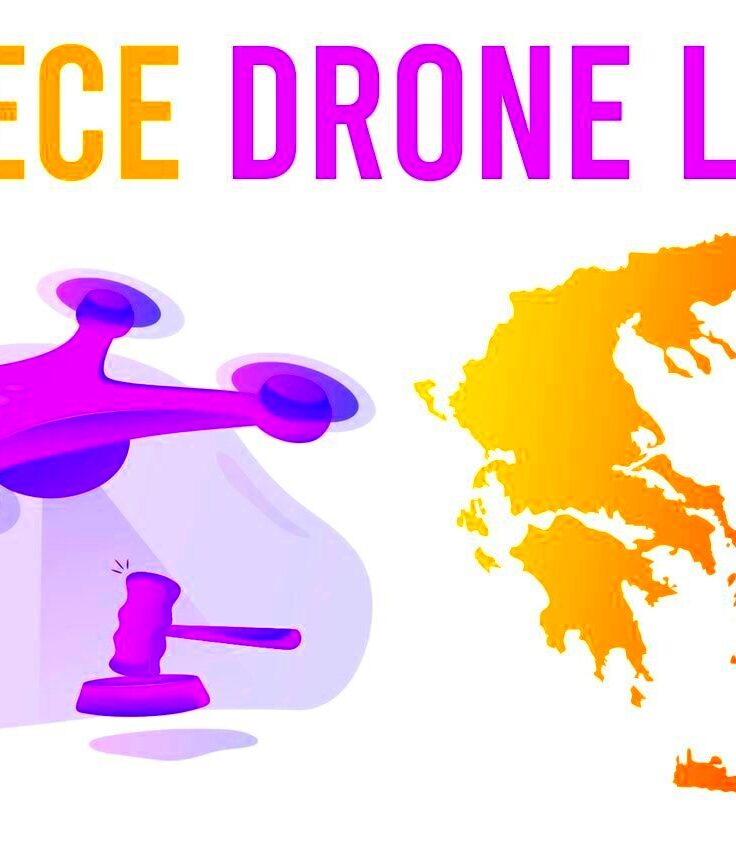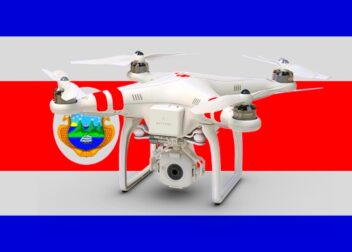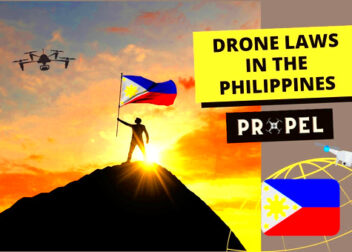Greece Drone Laws Explained
Greece is becoming a popular destination for drone enthusiasts, thanks to its stunning landscapes and rich history. However, flying a drone in Greece comes with its own set of laws and regulations. Understanding these rules is essential for both tourists and residents to ensure safe and responsible flying. This blog post will break down the key aspects of drone laws in Greece, covering everything from types of drones to licensing requirements. Let’s dive in!
Types of Drones and Regulations
In Greece, drones are categorized based on their weight and intended use. Here are the main types:
- Micro Drones: Weighing less than 250 grams, these drones have fewer regulations and are often used for recreational purposes.
- Small Drones: Weighing between 250 grams and 2 kilograms, these require registration and specific usage guidelines.
- Medium Drones: Ranging from 2 to 25 kilograms, these drones have stricter regulations and require pilot certification.
- Large Drones: Weighing over 25 kilograms, these are heavily regulated and often used for commercial purposes.
It’s crucial for drone operators to be aware of these categories and comply with the regulations set by the Hellenic Civil Aviation Authority (HCAA).
Licensing Requirements for Drone Operators
To operate a drone in Greece legally, certain licensing requirements must be met. Here’s a breakdown:
- Recreational Pilots: For micro and small drones, no license is required, but registration is mandatory.
- Certified Pilots: Operators of medium and large drones must obtain a remote pilot license, which includes training and passing a theoretical and practical exam.
- Insurance: All drone operators are advised to have liability insurance to cover potential damages.
- Registration: Drones weighing more than 250 grams must be registered with the HCAA.
By following these licensing requirements, drone pilots can ensure they are operating within the law, contributing to safer skies for everyone.
Restrictions on Drone Usage in Greece
While drones are exciting tools for capturing stunning visuals, there are specific restrictions on their use in Greece to ensure safety and privacy. Here are some key restrictions every drone operator should be aware of:
- No-Fly Zones: Drones are prohibited from flying near airports, military bases, and other sensitive areas. Always check local maps for no-fly zones.
- Height Limit: Generally, drones should not exceed an altitude of 120 meters (about 400 feet) above ground level unless specific permissions are obtained.
- Privacy Laws: Drones must not infringe on people’s privacy. Filming or photographing individuals without their consent can lead to legal issues.
- Weather Conditions: Flying in adverse weather conditions such as heavy rain, fog, or strong winds is not advisable and often prohibited.
- Night Flying: Most drones cannot be flown at night unless the operator has special permission and the necessary lighting equipment.
Staying informed about these restrictions can help ensure that drone enthusiasts enjoy their hobby responsibly and legally.
Airspace Regulations for Drones
Understanding airspace regulations is vital for safe drone operation. In Greece, airspace is divided into several categories, and each has its own rules:
| Airspace Type | Regulations |
|---|---|
| Controlled Airspace | Drones require permission from air traffic control to operate in controlled airspace, usually around airports. |
| Uncontrolled Airspace | Drones can operate without permission, but operators must still adhere to height limits and local regulations. |
| Special Use Airspace | This includes military and restricted areas. Drones are not allowed without special permission. |
Drone pilots should always check the specific airspace classification they plan to operate in and comply with all relevant regulations. This helps prevent accidents and ensures a safer flying experience for everyone.
Consequences of Violating Drone Laws
Understanding the potential consequences of violating drone laws is crucial for responsible flying in Greece. Here’s what could happen:
- Fines: Violating drone regulations can result in hefty fines, often ranging from €1,000 to €15,000 depending on the severity of the violation.
- Seizure of Equipment: Authorities may confiscate your drone if it’s being operated illegally.
- Legal Action: Serious violations, such as infringing on privacy laws or flying in no-fly zones, could lead to criminal charges.
- Loss of License: For certified drone pilots, violating regulations can lead to suspension or revocation of your flying license.
To avoid these consequences, always stay informed about the rules and regulations governing drone use in Greece. This way, you can enjoy flying while ensuring safety and compliance.
Recent Updates and Changes to Drone Laws
Drone laws in Greece have seen significant updates recently to keep pace with technological advancements and safety concerns. Staying informed about these changes is vital for all drone operators. Here are some of the key updates:
- New Registration Rules: As of 2023, all drones weighing over 250 grams must be registered with the Hellenic Civil Aviation Authority (HCAA), even for recreational use. This change aims to improve accountability among drone operators.
- Remote Identification: New regulations require drones to have remote identification capabilities. This means that law enforcement can easily identify the operator of a drone, promoting responsible flying.
- Expansion of No-Fly Zones: The list of no-fly zones has expanded, particularly around archaeological sites and popular tourist destinations to protect cultural heritage.
- Updated Training Requirements: For commercial drone operators, training programs have become more stringent. Operators now need to undergo comprehensive training to ensure they understand the latest regulations and safe operating procedures.
These updates reflect Greece’s commitment to safe and responsible drone use, balancing the interests of operators with the need to protect public safety and cultural heritage.
Frequently Asked Questions about Drone Laws in Greece
Many people have questions about drone laws in Greece. Here are some of the most frequently asked questions and their answers:
- Do I need a license to fly a drone in Greece? It depends on the weight of the drone. Micro drones (under 250 grams) do not require a license, but larger drones do.
- Can I fly my drone at night? Generally, flying at night is prohibited unless you have special permission and appropriate lighting.
- Are there restrictions on where I can fly my drone? Yes, drones cannot be flown in no-fly zones, near airports, or over populated areas without permission.
- What happens if I violate drone laws? Violations can lead to fines, confiscation of your drone, or even criminal charges depending on the severity of the infraction.
If you have more questions, it’s always a good idea to check the HCAA’s official website or consult local authorities for the most accurate and up-to-date information.
Conclusion on Greece Drone Laws
Understanding drone laws in Greece is essential for anyone looking to enjoy flying in this beautiful country. With recent updates and specific restrictions in place, it’s important to be informed and responsible. Whether you’re a recreational pilot or a commercial operator, adhering to these laws not only keeps you compliant but also helps maintain safety for everyone in the skies.
Remember to always check for the latest regulations, ensure your drone is registered if necessary, and respect the airspace around you. By doing so, you’ll contribute to a positive flying experience for yourself and others. Happy flying!


